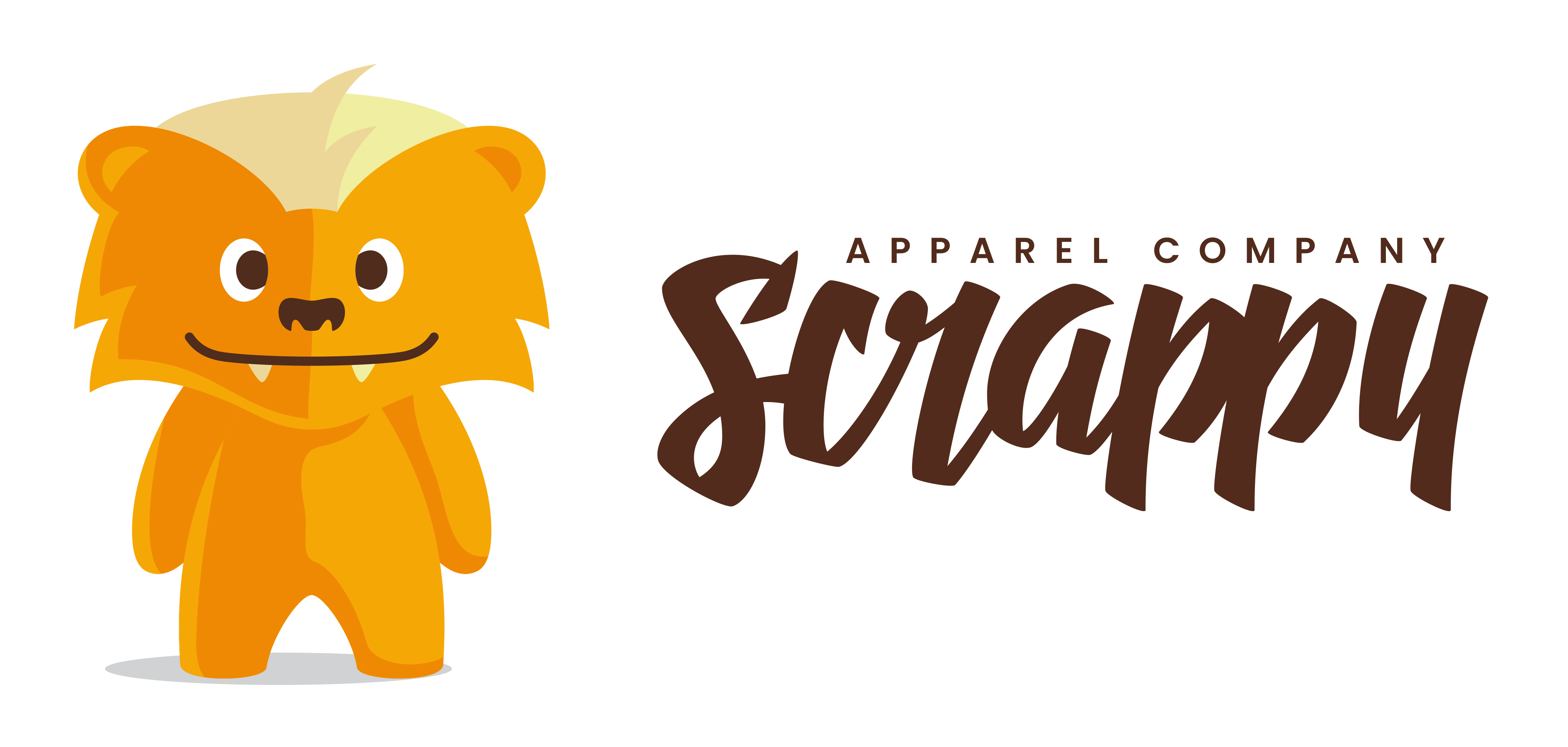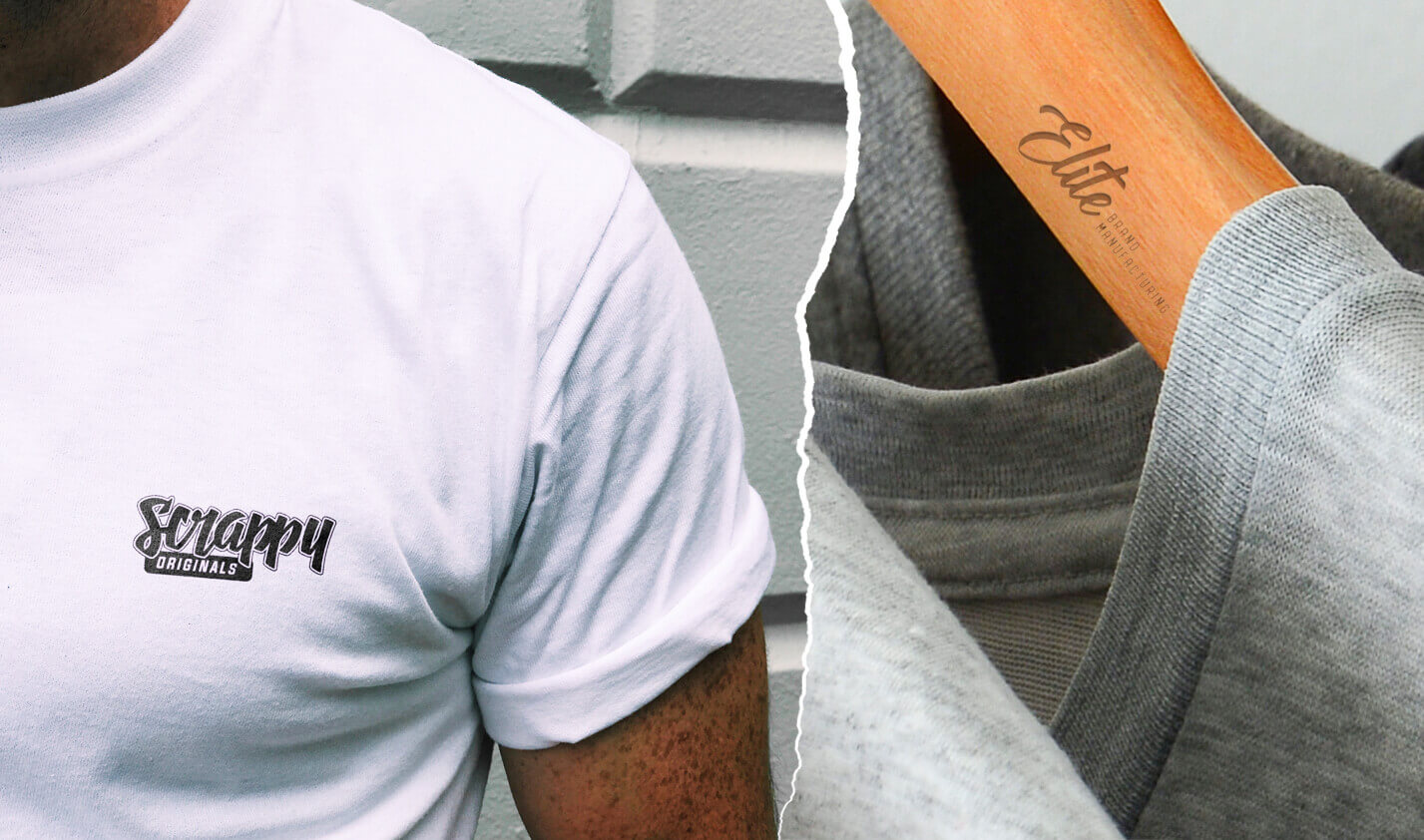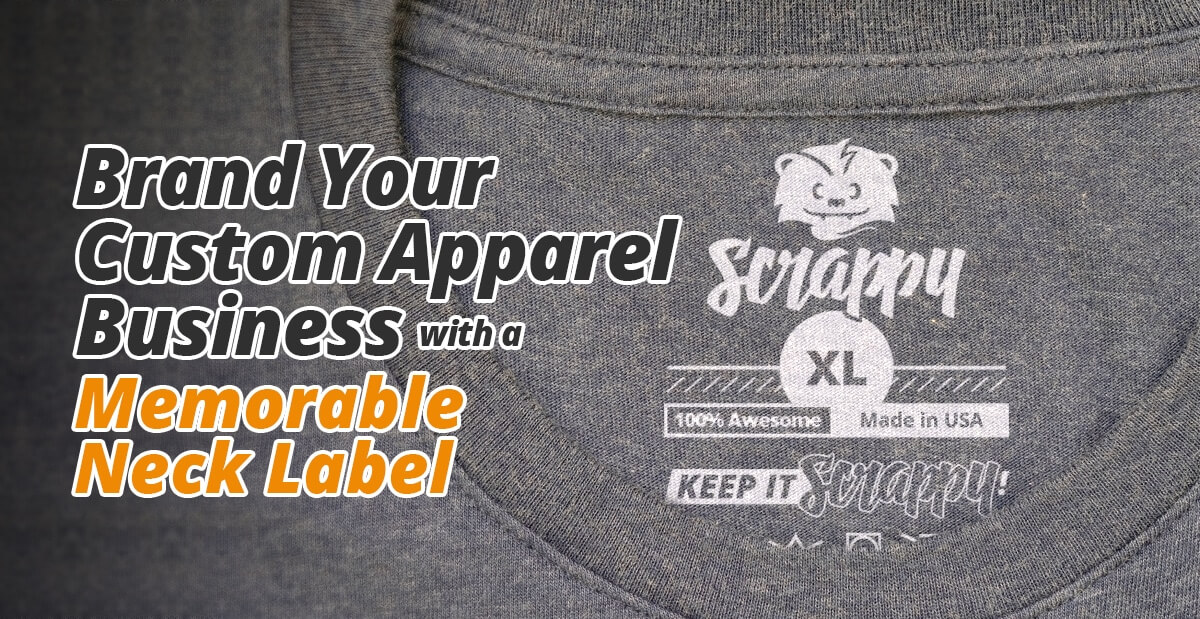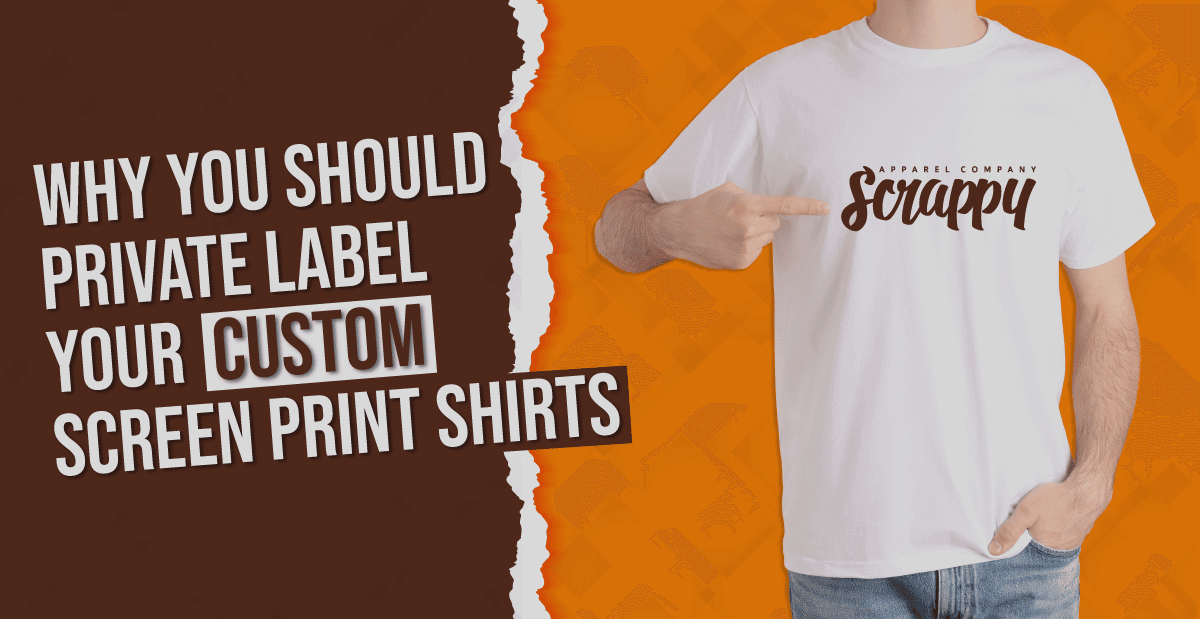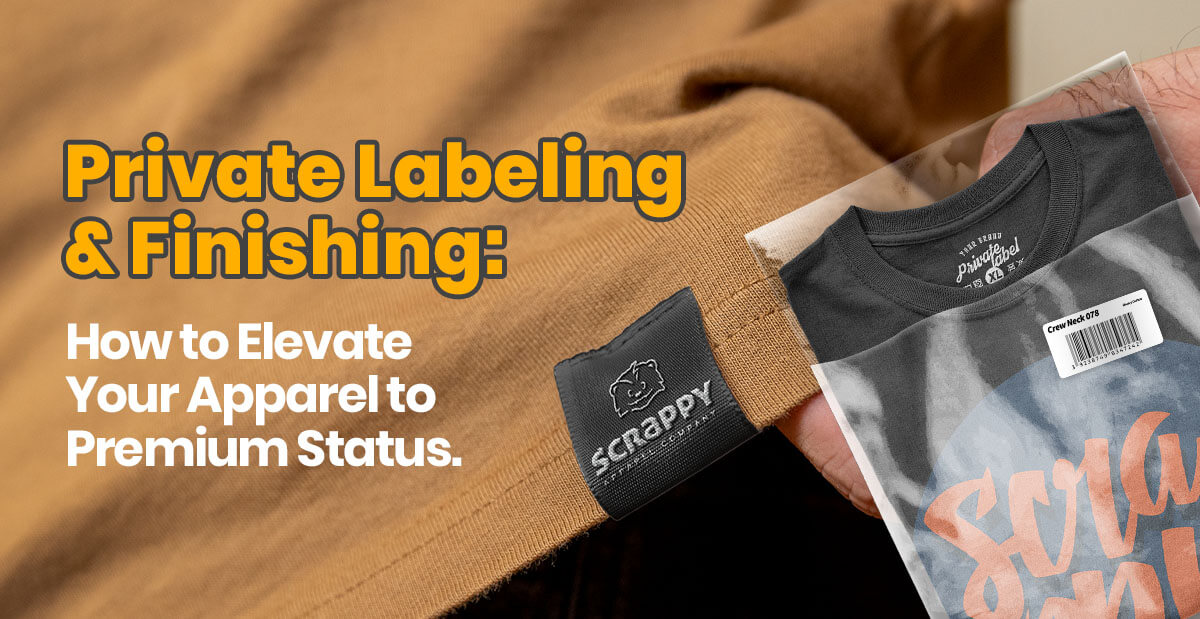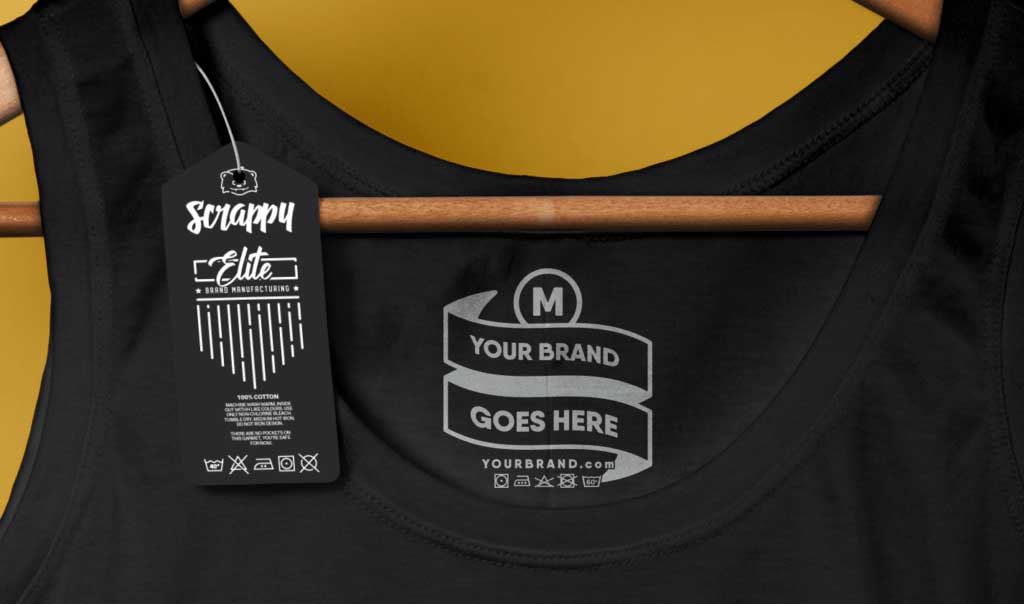
A private label clothing line is created when a brand pays for neck tags and other mass production labels to be removed from their clothing so that their own brand’s logo can be put in its place. A great example of this can be seen all throughout the t-shirt industry, where the tags of t-shirt manufacturers (like Gildan and Hanes) are removed and the brands selling the custom t-shirts have their logos screen printed into the neckline instead.
Why Choose Private Labeling?
Private labeling is the next step in building a distinguished brand. Anyone can take an off-the-shelf item of clothing, like a blank t-shirt, and put their custom design on it. However, while it creates a unique product that you can sell, it does not do anything to help you establish a brand or anything proprietary. With private labeling, however, you’ll be able to take your production to the next level.
The process of private labeling is extremely simple, yet it could improve your brand’s recognition (and revenues) immensely. Just by placing your brand’s own logo into the neck line of the apparel you sell, you’ll suddenly have an item that is exclusive, recognizable, and able to sell for more, just because you removed the generic clothing label and put in your own unique brand logo. If the concept sounds too good to be true, think again. Private labeling is a tactic currently be utilized as massive scale and, chances are, you buy private labelled items regularly without even realizing it. What’s more, retail giants like Amazon are actively using private labeling to establish small, profitable brands that are quickly gaining a following, which is resulting in more sales and higher profit margins. Obviously, private labeling comes at a cost, but that hasn’t slowed down the concept and it is rapidly spreading, especially as eCommerce opens up the doors for just about anyone to get into private label clothing companies. That’s right: With minimal barriers to entry, you don’t have to be a retail giant to enjoy the profitability of private labeling. Of course, private labeling isn’t necessarily a requirement, so why exactly is it worth investing in? Here are the top reasons to explain the process.
1. Private Labels Build Brand Recognition
First and foremost, the number one reason why companies pay for private labeling is to improve the recognition of their own brand (or, in some cases, multiple brands). In today’s competitive marketplace, brand recognition is key. Your brand may be the one and only thing that sets you apart from a sea of competitors, and a private label is the one way people will be able to associate your clothing directly to your brand.
This association and recognition are the fundamental elements that build brand loyalty, which is where branding really plays into your marketing strategy. With branded (private label) clothing, people who fall in love with your company will be that much prouder to wear what you produce. Additionally, when it comes to building brand recognition, consistency is key. So, you should be working to get your logo placed all over your customer-facing designs, packaging and, most importantly, your products themselves. Private labeling enables you to do just that. Every time they pick up your clothing, they’ll be reminded of who it came from, which is important considering that “presenting a brand consistently across all platforms can increase revenue by up to 23%.” Moreover, consistently presenting your brand means you’re 3.5x more likely to measure excellent brand visibility compared to those with inconsistent branding. Private labeling is the next step in building a distinguished brand. Anyone can take an off-the-shelf item of clothing, like a blank t-shirt, and put their custom design on it. However, while it creates a unique product that you can sell, it does not do anything to help you establish a brand or anything proprietary. With private labeling, however, you’ll be able to take your production to the next level.
2. Branded Clothing Sells for More
There’s a reason why Amazon alone has over 135 private brands that it markets products under. From Goodthreads (one of a few basic men’s clothing brands) to Mae and Arabella (two women’s lingerie brands), Amazon recognizes the power of branding. They have even seen success with private labeling in more upscale markets, with house brands like Buttoned Down selling suits, ties, dress pants, and the like for hundreds of dollars per piece.
Walmart and other corporate giants also use private labeling to help distinguish various lines of products. In fact, these private labeling strategies go far beyond apparel and reach into homewares, health, security devices, and so much more. All of this helps support the fact that private labeling is a worthwhile investment. On its own, it can take a generic product that you can buy for cheap and turn those products into a line of branded apparel that people will want to pay for. When it comes to what consumers think, a private label is always going to help them associate a piece with quality. When comparing a private labeled piece to an identical, generic, non-labeled item, the branded product is always going to sell for more, and that’s the power of brand identity. This is true even for smaller brands that may not be well-established or well-recognized. Private labeling is the next step in building a distinguished brand. Anyone can take an off-the-shelf item of clothing, like a blank t-shirt, and put their custom design on it. However, while it creates a unique product that you can sell, it does not do anything to help you establish a brand or anything proprietary. With private labeling, however, you’ll be able to take your production to the next level. The simple matter of associating an item with a brand over a generic mass label helps consumers see an item in a different, better light. Moreover, as your brand begins to become more recognized and commonly associated with quality and/or unique designs and apparel, you’ll be able to increase your profit margins even more just for that association.
3. Private Labels Help Distinguish Your Clothing Line
Without a private label, the shirt you’re selling could just as easily be sold by any other retailer, and whether or not other retailers are selling your clothing, a private label helps create exclusivity. It helps consumers instantly associate the products you’re selling with your brand, and this links back to building brand recognition and providing a platform for brand connection and loyalty.
Since over 43% of consumers are willing to spend more on items from brands they like, which is good news since 82% of adults in the United States are loyal to product-brands. This loyalty is definitely something you should work for by any means necessary, since the average business makes over 65% of its earnings from repeat customers. Loyalty also results in higher retention rates, and just a 2% increase in customer retention could lower your company’s costs by as much as 10%. Private labeling is the next step in building a distinguished brand. Anyone can take an off-the-shelf item of clothing, like a blank t-shirt, and put their custom design on it. However, while it creates a unique product that you can sell, it does not do anything to help you establish a brand or anything proprietary. With private labeling, however, you’ll be able to take your production to the next level.
All of these numbers tie together and they can all be associated with the strong branding power of private labeling. The fact that private labels helps distinguish your products from every other similar product out there will do wonders for your company. Real Thread can help you realize the benefits of private labeling with minimal startup costs. Click here to learn more about how Real Thread works and how you can use private labeling to grow your brand.
